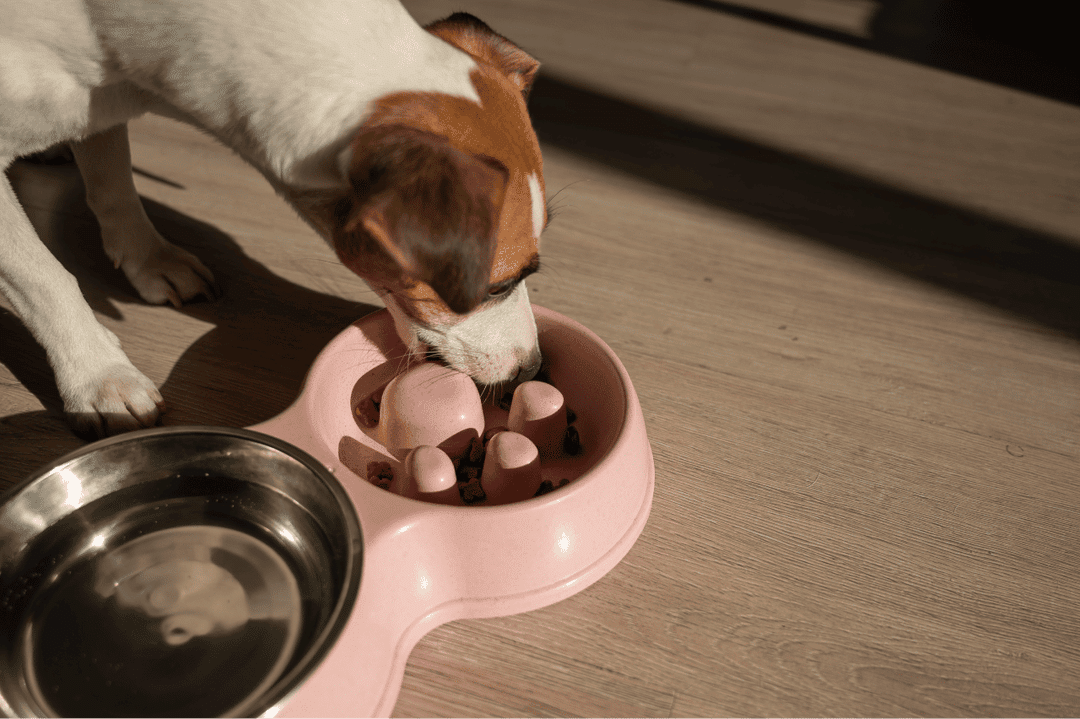
Health & Wellness
Top Diet Plans for Overweight Dogs: What Works?
• 3 min read
When it comes to our canine companions, maintaining a healthy weight is crucial for their overall well-being and longevity. Obesity in dogs can lead to a myriad of health issues, including diabetes, joint problems, and decreased life expectancy.
This guide will walk you through a structured approach to choosing the most suitable food and implementing a feeding and exercise regime that supports your dog's weight loss in a healthy manner.
Assess Your Dog's Health
Check Physical Condition
The first step in tackling canine obesity is to evaluate your dog's physical condition. A healthy dog should have an hourglass figure when viewed from above, and you should be able to feel its ribs without a thick layer of fat obscuring them. If these characteristics are not evident, it's likely that your dog is overweight. The American Kennel Club provides visual aids and descriptions to help you assess your dog’s body condition accurately.
Consult a Veterinarian
Before making any diet changes, it’s crucial to consult with a veterinarian. They will help determine the ideal weight for your dog and address any specific dietary needs that may arise from health conditions or breed-specific traits. According to Dog Food Advisor, a veterinarian can also suggest a feeding plan and recommend therapeutic dog foods tailored to your pet's health requirements.
Understanding Dog Food Labels
Analyze Food Quality
Choosing high-quality dog food is essential. Look for foods that are high in protein and low in carbohydrates. Avoid products marketed as "diet" or "light" as they often contain high levels of carbohydrates and fillers, which do not effectively satisfy hunger. These tips are underscored by insights from Dog Food Advisor, which emphasizes the importance of reading and understanding pet food labels to ensure nutritional adequacy.
Nutritional Content
Select dog foods that offer above-average protein and below-average fat and calorie contents. This balance helps manage weight without sacrificing the nutritional value necessary for your dog's overall health and energy levels.
Implement Feeding Guidelines
Calculate Caloric Needs
The Resting Energy Requirement (RER) formula is a good starting point to determine how many calories your dog needs per day. For a dog, multiply its weight in kilograms by 30 and add 70 to that number. Adjust this calculation based on your dog's age, activity level, and health status as recommended by the American Kennel Club.
Measure Food Portions
Accurate portion control is vital. Use a measuring cup or scale to ensure you are providing the correct amount of food. Eyeballing portions can lead to overfeeding, even with the best intentions.
Incorporate Exercise
Regular Physical Activity
Diet alone often isn't enough to combat obesity. Integrating regular physical activity into your dog’s routine boosts their metabolism and aids in weight loss. Activities like brisk walking, running, or playing fetch are excellent for increasing calorie expenditure, as highlighted by the American Kennel Club.
Monitor Progress
Track Weight and Adjust Diet
Keeping a log of your dog’s weight progress is important. Regular weigh-ins will help you determine if the dietary changes are effective or if further adjustments are needed. Continuous monitoring and regular veterinary check-ups are crucial to ensure your dog is on the right track towards reaching an ideal weight.

Conclusion
Choosing the right diet for your obese dog involves careful consideration of their specific health requirements and lifestyle. By understanding how to assess your dog's health, interpret dog food labels, and implement structured feeding and exercise plans, you can significantly improve your dog's quality of life. This guide not only helps your pet achieve a healthier weight but also enhances their overall happiness and well-being.
References
This guide incorporates information from respected sources such as Top Dog Tips, American Kennel Club, and Dog Food Advisor. These articles provide comprehensive guidance on managing dog weight through diet and exercise, offering practical tips and detailed advice for pet owners facing the challenge of canine obesity.
MMDC Team
Healthy Pet, Happy Pawrents 💛